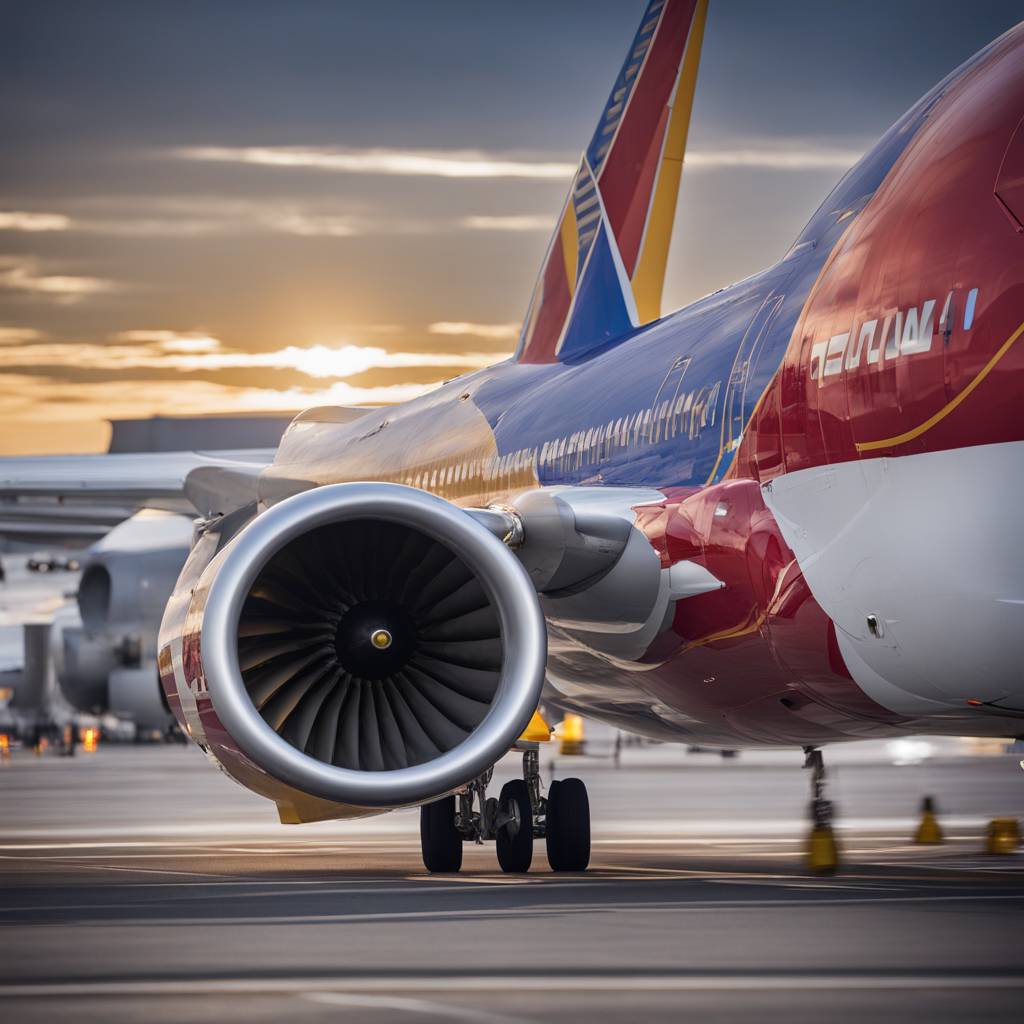A Southwest Airlines flight departing from Denver International Airport to Houston’s William P. Hobby Airport was forced to return to the airport after an engine cowling fell off the plane and struck a wing flap during takeoff. The incident prompted the Federal Aviation Administration to investigate the situation, while Boeing, the manufacturer of the plane, stated that their Maintenance teams are reviewing the aircraft. Customers on the flight were transferred to a different aircraft and arrived at their destination three hours late. This comes amid ongoing regulatory scrutiny for both Boeing and Southwest Airlines following a separate incident in March when a Southwest flight strayed off course near LaGuardia Airport in New York.
Boeing has been facing increased regulatory scrutiny following several incidents involving its planes. In a separate incident in January, one of its plane’s doors flew off during an Alaska Airlines flight, raising additional safety concerns. These quality control issues have led to safety concerns for airlines like Southwest, which rely on Boeing planes for their operations. Boeing’s delivery rates have slowed in recent months, and the FAA certification of its 737 Max 10 model has faced delays. The company’s CEO, Dave Calhoun, announced his resignation in March, along with other management changes, highlighting the turbulence facing the aviation industry as a whole.
The issues faced by Boeing have had ripple effects on airlines such as Southwest and United, forcing them to make adjustments to their operations. Both airlines have had to cut down on flights and hiring due to the ongoing challenges with Boeing planes. The recent incident involving the Southwest flight in Denver further underscores the safety concerns faced by airlines, passengers, and regulators. The focus on improving safety standards and monitoring the performance of aircraft has become paramount for the aviation industry as they navigate through these turbulent times.
The incident involving the Southwest Airlines flight highlights the importance of stringent safety protocols and maintenance checks for airlines and aircraft manufacturers. The collaboration between regulatory bodies like the FAA and the industry stakeholders is crucial to ensuring the safety of air travel for passengers. Boeing’s commitment to addressing the quality control issues and improving the safety standards of its planes will be critical in restoring trust in its products and regaining confidence from airlines and passengers. The ongoing scrutiny and investigations into these incidents serve as a reminder of the importance of prioritizing safety in all aspects of aviation operations.
As airlines like Southwest and United grapple with the impact of Boeing’s issues on their operations, they are faced with the challenge of balancing safety, efficiency, and customer satisfaction. The incidents involving Boeing planes have forced these airlines to make tough decisions about flight schedules, staffing, and fleet management. The disruptions caused by these incidents have highlighted the interconnected nature of the aviation industry and the need for effective collaboration between all stakeholders to address safety concerns and ensure a safe travel experience for all passengers. Moving forward, the industry must continue to prioritize safety and regulatory compliance to prevent similar incidents from occurring in the future.













